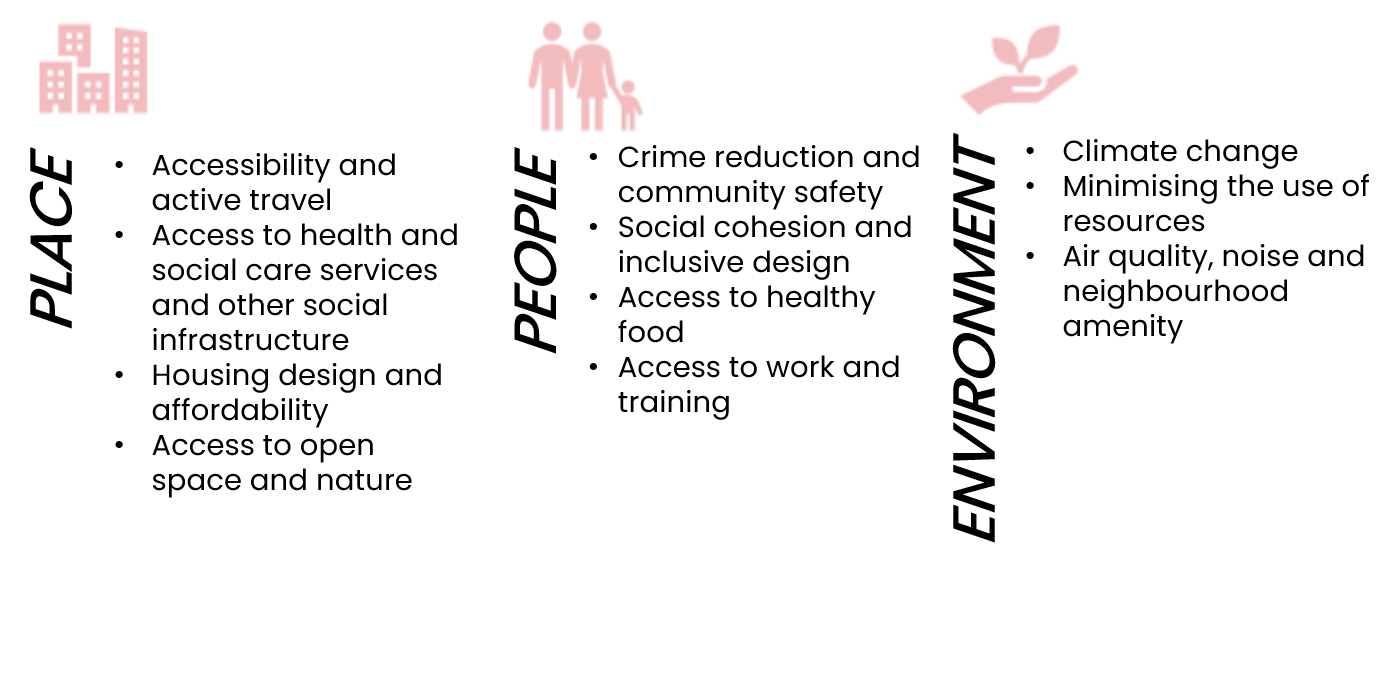Using Health Impact Assessments to improve your places
Katie Wood
The built environment is an important influence on the health and wellbeing of individuals and communities. This blog offers ideas as to how Towns can consider, plan and evaluate the projects put forward within your Town Investment Plans (TIPs) and being developed in your business cases to maximise the positive health and wellbeing outcomes for the local population.
The built environment can influence health and wellbeing in a number of ways by impacting directly or indirectly on health determinants, as shown below.
Wider determinants of health, taken from the NHS London Healthy Urban Development Unit Rapid Health Impact Assessment Tool
Health Impact Assessment (HIA), a methodology promoted by the Government in the National Planning Policy Framework, and the Healthy Lives, Healthy People strategy, is used in the planning process to assess the impact of environmental schemes on the health of the local population. The aim is to minimise and mitigate adverse effects on health and maximise positive outcomes.
Understanding the health and wellbeing policy and needs for your town
Several processes within the HIA methodology could help to build an understanding of the health needs for your town and to consider how to design for these in your projects:
Review the Joint Health and Wellbeing Strategy for your town/borough to understand health priorities regarding children, adults, older adults, and health inequalities in your area;
Local plans often identify specific locally relevant health targets regarding physical activity, obesity, mental health, health inequalities, as well as common diseases such as cancer, heart disease and lung disease;
Talk with your Director of Public Health to understand their team’s point of view regarding health and wellbeing in your town;
Review national policies relating to health such as guidelines for physical activity and childhood obesity;
Review the HWB Dynamic Dashboard which highlights a number of key health and wellbeing indicators for your town; and
Engage with the community to understand issues and concerns.
Identifying the health and wellbeing impacts of your projects
Once you have identified the key health needs for your town, how can you ensure that your town’s projects addresses health determinants that will impact these needs? For example, if your town needs to reduce obesity rates, how can you ensure that active travel is incorporated effectively into your projects?
A useful place to start is to use the Healthy Urban Planning Checklist, which will help you to consider factors associated with active travel, healthy environments, and vibrant neighbourhoods for your projects. The checklist will identify temporary, short-term and longer-term health effects on the local population, as well as effects on vulnerable groups such as the elderly. Where health effects are identified, steps should be identified at this stage to mitigate a negative effect or to secure a positive effect. The checklist should result in a list of recommendations for the project e.g. design changes, mitigation plans, and monitoring needs, for the design, construction and operational phases of the project.
Towns will differ in how far they wish to take the HIA assessment, but hopefully this blog will help start conversations about how to design health and wellbeing into your plans.

